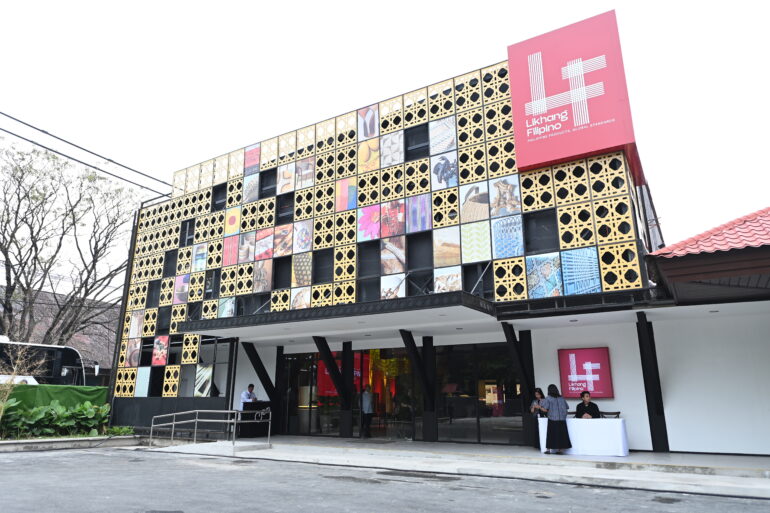Two parents, two cultures, one child. According to this mother, parenting their Filipino-German daughter comes with its own unique adventures.
She really is just like any 9-year-old—a pandemic grade schooler who grew up on Zoom classes and Roblox. When she’s with her friends and cousins, they talk about their favorite Sanrio characters and trade squishies.
Aside from these more generic characteristics, our daughter Chiara has also developed some preferences that can be attributed to growing up in a household with a Filipina mother (me, of course) and a German father. She loves my chicken adobo with rice, but will enjoy a dinner of pan-seared salmon and pureed potatoes just as much. She is just as exposed to Filipino pop culture and political figures as she is to German 1980s new wave music. And unfortunately, yes, she got her dance skills from her father, Matthias.
Empathy is a very powerful tool in a biracial home. A child growing up in between two worlds is a natural conduit for those cultures.
Despite being born and raised in the Philippines, quite inevitably, Chiara is being brought up in a biracial household.
Like most parents, we simply want what is best for her. And, as in any family, this could mean two completely different things since there are two autonomous adults coming from totally unique ancestral and cultural backgrounds. But, aside from the usual desires and wishes of most parents (such as raising a decent and independent human being, for one), there are a few other things that parents of biracial children should consider.
Get the technicalities in order.
Paperwork is always tedious and a hassle, but I discovered that it is much simpler when accomplished as soon as possible. Having been born in the Philippines to a German father and a Filipina mother, Chiara is automatically Filipino but also entitled to German citizenship.
Aside from her German passport, we also received a German birth certificate from Hamburg, where her dad is from. We should have registered her as soon as she was born, and her German passport application could have followed, but instead we applied for these at the same time which proved more difficult and took years to accomplish.
Still, I think we did well in getting her German papers in order as soon as we could, seeing now how many Filipinos are applying for US green cards or Spanish golden visas. This really is just one of the smallest contributions this amazing dad has done for our daughter, but at the same time it undeniably multiplies her options tenfold.



Accept each other’s cultural differences.
It might seem like a marriage issue, but this greatly affects the environment wherein your child will be raised. Matt was born in Germany to his German dad and Ilongga mom, and while he is technically half-Pinoy, he grew up in Ralhstedt where there were not a lot of immigrants. He is, one can say, stereotypically German in many ways, and so is his idea of how he wants to parent Chiara. As for myself, growing up in a very tight-knit, highly traditional Filipino family, I too have some non-negotiables when it comes to raising a daughter whom I would wish to become a strong, kind, and intelligent woman someday.
While we are all the same, our differences are also there to be celebrated and, more importantly, respected.
However, as in a lot of things when it comes to marriage, you must choose your battles and at the end of the day, you and your partner are a team. Discuss which parts of each other’s culture you both wish to inculcate within your household, as well as the ones you feel you can all do without.
Yes to German efficiency, no to Filipino mañana habit. While the stern and cold manner of Teutonic educators might have produced the tech leaders and music legends of the western world, perhaps the gentle, progressive ways of our local teachers are better suited for our creative and sweet-natured girl. When things are not working out, accept and adjust. There is no right and wrong way of raising your child, and when it comes to culture, one is not better than the other.
Create self-awareness and encourage empathy.
This is something we all need more of in any household—in the world in fact. Empathy is a very powerful tool in a biracial home. A child growing up in between two worlds is a natural conduit for those cultures, and raising a child that is sensitive and understanding to the needs of others makes them well-suited for this role.
Kids these days are already typically more aware—“woke,” as we have labeled them. It really is never too early to teach our children about the duality of race— how it is both a non-issue as well as an important talking point. That while we are all the same, our differences are also there to be celebrated and, more importantly, respected. Imagine a world where people can feel safe anywhere they go and the color of one’s skin does not dictate their future. Education starts at home, as they say, and I like to believe that raising my biracial child to be kind and tolerant is a small step towards that world.
In the cosmopolitan area where we live, there are many who look like Chiara. She is only unique in the sense that all human beings are unique. She is not better than everyone else because of the other passport she carries or the lightness of her skin. However, I expect her to be a better version of her dad and I in every way, because not only do we wish for her a great future but for her to also actively contribute to it.








